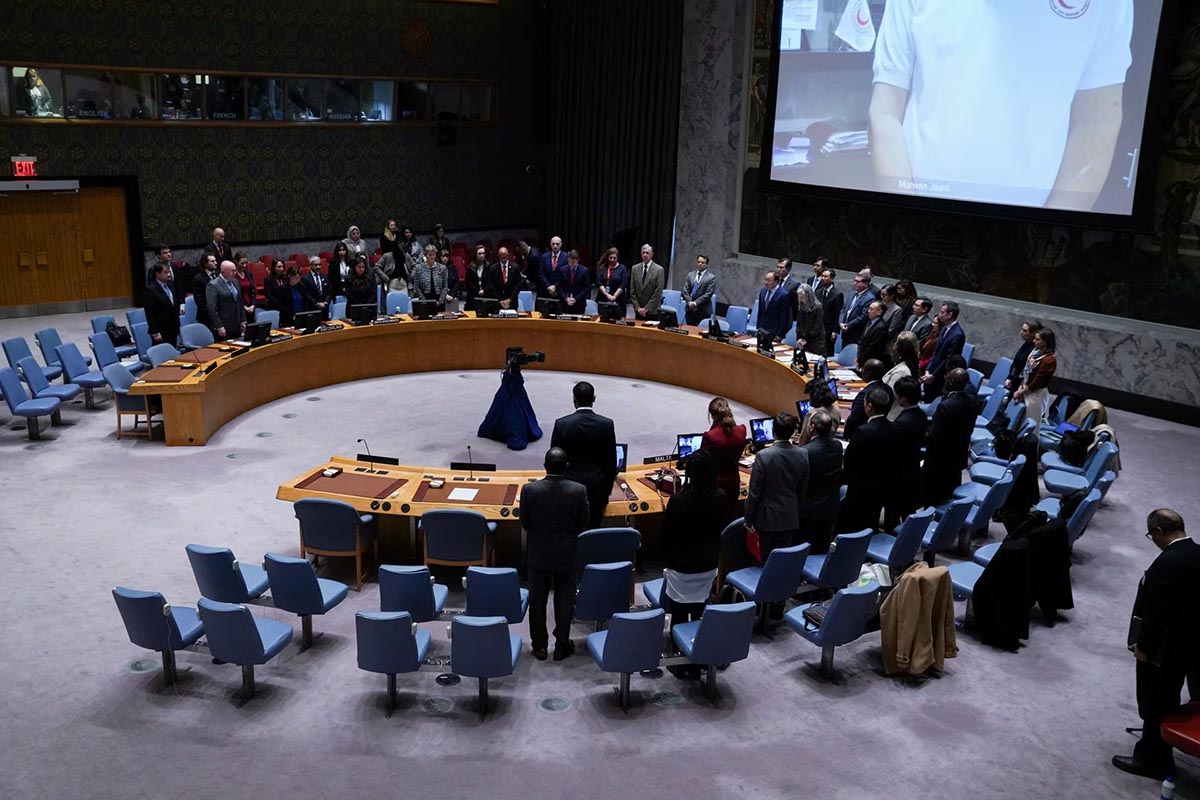The 15-member council overcame a the hurdle and impasse, which saw four unsuccessful attempts to take any action last month, to adopt a resolution that also calls for the immediate and unconditional release of all hostages held by Hamas.
Unsurprisingly, the trio of the United States, Russia and Britain, who are council veto-powers, abstained from Wednesday’s vote on the resolution drafted by Malta. The remaining 12 members voted in favour of pausing the warfire.
The stalemate in the UNSC has been centered on whether to call for a humanitarian pause or a ceasefire. A pause is generally considered less formal and shorter than a ceasefire, which has to be agreed by the warring parties. The United States has only backed pauses, while Russia has pushed for a ceasefire.
Russia failed in a last minute bid to amend the resolution to call for a truce leading to a complete cessation of hostilities. Russia abstained because there was no call for an immediate ceasefire, Ambassador Vassily Nebenzia told the council.
The resolution was the fifth attempt by the UNSC to take action since Israel says Hamas militants killed 1,200 people and took about 240 hostage in a surprise assault on Oct. 7. The text also does not condemn the Hamas attack – a point of contention for Israel’s ally, the U.S., and Britain.
Ultimately, the United States could not vote ‘yes’ on a text that did not condemn Hamas – or reaffirm the right of all member states to protect their citizens from terrorist attacks,” U.S. Ambassador to the U.N. Linda Thomas-Greenfield told the council after the vote.
Britain also held back (abstained) because there was no condemnation of the Oct. 7 attacks by Hamas.
“The barbarity of those attacks should be clear to us all,” Britain’s U.N. Ambassador Barbara Woodward told the council. “But let me be absolutely clear, it was vital and overdue for the council to speak on this crisis and we strongly support the resolution’s purpose: to get aid in, and hostages out.”
The council called “for urgent and extended humanitarian pauses and corridors throughout the Gaza Strip for a sufficient number of days to enable … the full, rapid, safe, and unhindered humanitarian access.”
Following the attacj by Hamas on October 7, Israel has vowed to wipe out Hamas, which rules Gaza, striking the enclave of 2.3 million from the air, imposing a siege and invading with soldiers and tanks. Gaza health officials, considered reliable by the United Nations, say about 11,500 Palestinians are confirmed killed.
“Hamas has deeply embedded itself within the civilian population in Gaza,” Thomas-Greenfield said. “But we have been clear at the highest levels: Hamas’s actions do not lessen Israel’s responsibility to protect innocent people in Gaza.”
The Security Council attempted four times in two weeks in October to act. Russia failed twice to get the minimum votes needed, the United States vetoed a Brazilian-drafted resolution and Russia and China vetoed a U.S.-drafted resolution.
Finally, the resolution adopted on Wednesday articulates demands for a compliance with international law, most especially the protection of civilians, especially children. It also calls on all parties to the ongoing not to deprive civilians in Gaza of basic services and humanitarian aid needed for their survival, welcomes the initial, limited deliveries of aid, but calls for that to be increased.
After the UN Security Council deadlock last month, the 193-member U.N. General Assembly
adopted on Oct. 28 – with 121 votes in favour – a resolution drafted by Arab states that called for an immediate humanitarian truce and demanded aid access to the Gaza Strip and protection of civilians.
Related:
New York, Chicago, Madrid, Athens, Sydney, Paris, the people march for #Palestine
21 Journalists killed in Israel-Palestine conflict since October 7
US: Jewish peace activists protest in solidarity with Palestine, demand ceasefire in Gaza

